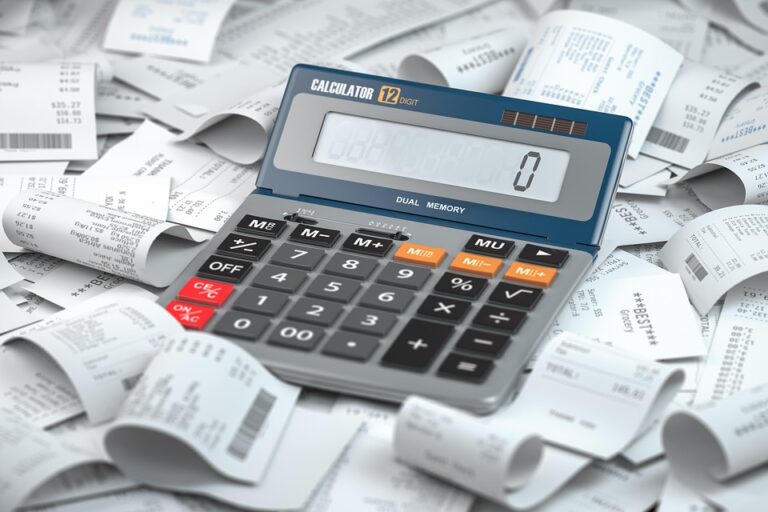Last updated Jun. 19, 2024 by Peter Jakes
A low credit score can feel like an insurmountable barrier to achieving many financial goals, such as securing a mortgage, obtaining a credit card with favorable terms, or even getting approval to rent an apartment. For many, a low credit score can generate feelings of despair and anxiety. However, it’s crucial to understand that a low credit score doesn’t mean you’re out of options. Rather, it signifies that alternative strategies need to be considered and a proactive approach adopted.
Understanding Credit Scores
Before diving into solutions, it’s essential to understand what a credit score entails. A credit score is a numerical expression based on an analysis of a person’s credit files, representing the creditworthiness of an individual. The most commonly used credit scores are FICO scores, which range between 300 and 850. A score lower than 580 is generally considered poor.
Factors influencing your credit score include payment history, amounts owed, length of credit history, new credit, and types of credit used. Poor credit scores can result from missed payments, high credit utilization, short credit histories, multiple new credit inquiries, and a mix of credit types that isn’t optimal.
Navigating Your Options
Assess Your Financial Situation
Firstly, conduct a thorough assessment of your financial situation. Understand where your credit score stands and what factors are contributing to it. Access your credit reports from the three major bureaus (Equifax, Experian, and TransUnion) and review them for errors. You are entitled to one free credit report from each bureau every 12 months via AnnualCreditReport.com.
Secured Credit Cards
Secured credit cards are a fantastic starting point for individuals with low credit scores. These cards require a cash deposit as collateral, which usually becomes your credit limit. For example, if you deposit $500, your credit limit is $500. Using a secured credit card responsibly—making on-time payments and keeping the balance low—can help rebuild your credit over time.
Credit-Building Loans
Credit-building or credit-builder loans are another solid option. These loans are typically small, ranging from $300 to $1,000, and are designed specifically for people looking to build or rebuild their credit. The money you borrow is held in a bank account while you make payments, and once you’ve paid off the loan, you receive the amount borrowed.
Peer-to-Peer Lending
Peer-to-peer (P2P) lending platforms can be an alternative for obtaining loans with a low credit score. These platforms connect borrowers directly with individual investors, which can sometimes result in better terms compared to traditional banks. However, it’s essential to review the fees and interest rates associated with P2P loans, as they can vary significantly.
Credit Unions
Credit unions are non-profit institutions that often offer more personalized services and flexible lending criteria compared to traditional banks. If you’re a member of a credit union, you might be able to secure a loan or credit card even with a low credit score. Their lending decisions are frequently based on a broader analysis of your financial situation, not just your credit score.
Co-Signers
If possible, consider asking a friend or family member with a strong credit history to co-sign a loan or credit card application. A co-signer shares the responsibility of the debt, which can make lenders more willing to extend credit. However, be aware that this also means the co-signer is equally responsible for repayment, and missed payments can affect their credit as well.
Alternative Lending Institutions
There are various alternative lending institutions that specialize in working with individuals who have low credit scores. These institutions might offer payday loans, title loans, or other short-term loan products. However, it’s critical to approach these options with caution. Many of these loans come with very high-interest rates and fees, which can exacerbate financial troubles if not managed properly.
Debt Management Plans
If your low credit score is due to high existing debt, a debt management plan (DMP) might be suitable. Non-profit credit counseling agencies often offer DMPs, where they negotiate with creditors on your behalf to lower interest rates and create manageable repayment plans. You then make a single monthly payment to the agency, which distributes it to your creditors.
Financial Counseling
Seeking help from a certified financial counselor can provide personalized strategies for improving your credit score. These professionals can help you create a budget, pay down debt, and understand the steps needed to rebuild your credit.
Proactive Steps for Long-Term Improvement
Regularly Monitor Your Credit
Keeping an eye on your credit report and monitoring it regularly can help you catch and address errors or fraudulent activities promptly. Many financial institutions offer credit monitoring services, often for free for their customers.
Automate Payments
Set up automatic payments for your bills to ensure that you never miss a payment. Timely payments are a significant factor in calculating your credit score.
Reduce Debt
Work on paying down existing debt, especially high-interest credit card balances. Aim to keep your credit utilization ratio (the amount of credit you’re using compared to your credit limit) below 30%. This can positively impact your credit score.
Avoid Unnecessary Credit Inquiries
Every time you apply for credit, an inquiry is made on your credit report, which can lower your score slightly for a short period. Avoid applying for unnecessary credit to keep these inquiries to a minimum.
Diversify Your Credit Mix
If possible, try to maintain a mix of different types of credit, such as credit cards, installment loans, and retail accounts. A diverse credit mix can be beneficial for your credit score.
Be Patient and Persistent
Improving a low credit score takes time, discipline, and persistence. Make consistent effort towards building good credit habits, and over time, your score will improve.
✓ Short Answer
Having a low credit score doesn’t mean you’re out of options. There are numerous strategies you can employ, such as using secured credit cards, credit-building loans, and seeking assistance from credit unions, co-signers, and financial counselors to improve your financial standing over time.
Conclusion
A low credit score can be a significant challenge, but it doesn’t spell the end of your financial journey. By understanding the factors that impact your credit score and exploring alternative financial options, you can effectively navigate your way out of the low-credit predicament. Be proactive, seek professional advice when necessary, and most importantly, be patient. With concerted effort and prudent financial management, you can rebuild your credit score and gain access to better financial opportunities.
FAQs
1. Can I get a mortgage with a low credit score?
Yes, it’s possible to get a mortgage with a low credit score, but it may come with higher interest rates and less favorable terms. Consider FHA loans, which are designed for borrowers with lower credit scores. Consulting with a mortgage broker can also provide insights into available options.
2. Do secured credit cards help improve credit scores?
Yes, secured credit cards can help improve your credit score when used responsibly. Timely payments and low credit utilization on a secured credit card are reported to credit bureaus, which can positively impact your credit score over time.
3. What is a debt management plan?
A debt management plan (DMP) is a service offered by credit counseling agencies that involves negotiating with creditors to reduce interest rates and creating a consolidated repayment plan for your debts. You make a single monthly payment to the counseling agency, which then distributes it to your creditors.
4. How long does it take to rebuild a low credit score?
Rebuilding a low credit score can take several months to a few years, depending on the specific circumstances and the strategies employed. Consistency in positive financial behaviors is key to gradual improvement.
5. Are payday loans a good option for people with low credit scores?
Payday loans should be approached with caution, as they often come with very high-interest rates and fees. They can provide quick access to cash but can also lead to a cycle of debt if not managed properly.
6. Can errors on my credit report affect my score?
Yes, errors on your credit report can negatively affect your credit score. It’s important to regularly review your credit report and dispute any inaccuracies with the credit bureaus to ensure your score accurately reflects your credit history.
7. How can I find a good financial counselor?
Look for a certified financial counselor through organizations like the National Foundation for Credit Counseling (NFCC) or the Financial Counseling Association of America (FCAA). Ensure the counselor is accredited and has a good reputation for helping individuals with credit issues.
8. Will closing old credit accounts improve my credit score?
Closing old credit accounts can sometimes hurt your credit score because it may reduce your overall credit limit and increase your credit utilization ratio. It’s generally advisable to keep old accounts open, especially if they have no fees, to maintain a long credit history.
By staying informed and taking deliberate steps, you can turn your low credit score into a higher one and open up new financial opportunities. Remember, patience and persistence are your greatest allies in this journey.




